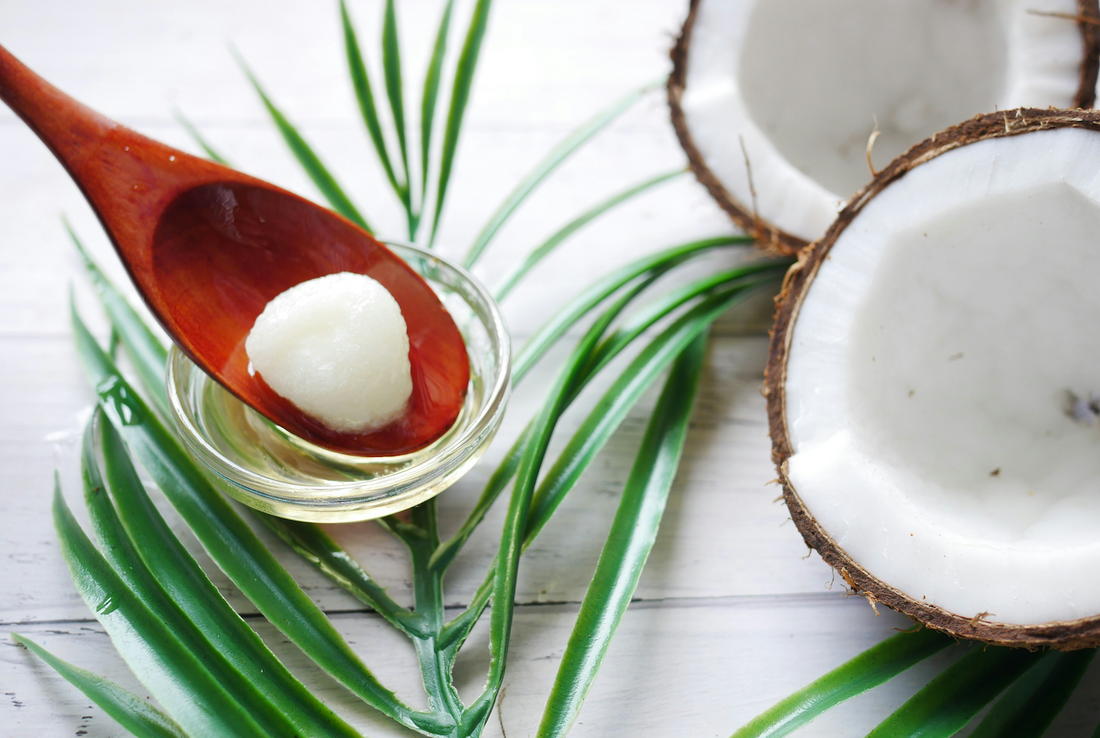
Tallow vs. Plant Oils: Which Is Better for Your Skin?
Share
When it comes to moisturizing your skin, the choices can feel endless: coconut oil, shea butter, jojoba oil, almond oil, olive oil—the list goes on. But one natural ingredient that's been making a quiet comeback in the world of holistic skincare is tallow—rendered beef fat, traditionally used for centuries in skin care and soapmaking.
So how does tallow stack up against popular plant-based oils? In this post, we’ll explore the differences between tallow and common plant oils like coconut oil, jojoba oil, and shea butter, to help you decide what’s best for your skin.
What Is Tallow?
Tallow is rendered fat from cattle, ideally from grass-fed animals. It's incredibly rich in skin-friendly nutrients, including fat-soluble vitamins (A, D, E, K, and B12) and fatty acids that closely resemble human sebum.
Tallow is known for its:
-
Deep moisturizing ability
-
Anti-inflammatory properties
-
Barrier-repair support
-
Natural compatibility with human skin
Unlike synthetic lotions, tallow provides long-lasting hydration without clogging pores or causing irritation. Its composition makes it ideal for dry, sensitive, or damaged skin.
The Contenders: Common Plant-Based Oils
Let’s look at the plant oils most often used in skincare and how they compare to tallow.
1. Coconut Oil
Coconut oil is a widely used natural moisturizer. It’s solid at room temperature and has antimicrobial properties due to its high lauric acid content.
Pros:
-
Antimicrobial
-
Affordable and accessible
-
Light scent
Cons:
-
Can clog pores (comedogenic)
-
Not ideal for acne-prone or sensitive skin
-
May feel greasy on some skin types
According to a 2014 study in the International Journal of Dermatology, virgin coconut oil showed positive effects in treating mild to moderate atopic dermatitis, but it may not be suitable for all skin types (Source).
2. Jojoba Oil
Jojoba oil is technically a wax ester, not a true oil, and is one of the most similar plant substances to human sebum.
Pros:
-
Lightweight and fast-absorbing
-
Non-comedogenic
-
Balances oil production
Cons:
-
Lacks the full range of fat-soluble vitamins found in tallow
-
Less occlusive than tallow (may not be hydrating enough for very dry skin)
Jojoba oil is well-tolerated by most skin types, but studies show its antioxidant benefits are milder compared to other oils.
3. Shea Butter
Shea butter is extracted from the nut of the African shea tree and is rich in fatty acids and vitamins.
Pros:
-
High in oleic and stearic acid
-
Contains vitamins A and E
-
Anti-inflammatory and emollient
Cons:
-
Can feel heavy or greasy
-
May cause breakouts in some skin types
-
Can oxidize over time
While shea butter has been praised for helping dry skin and inflammation, it lacks some of the unique skin-identical compounds found in animal fats like tallow.
Why Tallow Has the Edge
Tallow’s molecular structure and nutrient profile make it uniquely effective for supporting skin health in ways that plant oils often can’t match.
1. Bioavailability and Absorption
Tallow has a structure nearly identical to the sebum your skin naturally produces. This allows it to absorb more effectively and deliver nutrients deep into the skin’s layers.
Unlike coconut or shea, which often sit on the skin’s surface, tallow works within your skin’s lipid barrier to:
-
Support cell regeneration
-
Lock in moisture
-
Deliver fat-soluble vitamins directly to skin cells
2. Nutrient Density
Tallow contains:
-
Vitamin A – Essential for skin repair
-
Vitamin D – Supports the immune response in skin
-
Vitamin E – Antioxidant and healing
-
Vitamin K – Helps reduce scarring and inflammation
-
Vitamin B12 – Only found in animal products and critical for reducing redness and dryness
This combination of nutrients is difficult to replicate with plant oils alone.
3. Skin Barrier Support
Many plant oils offer surface-level moisture, but tallow actually helps repair and strengthen the skin barrier. It contains fatty acids like:
-
Stearic acid – Rebuilds skin structure
-
Oleic acid – Enhances nutrient absorption
-
Palmitoleic acid – A natural antimicrobial and key component in youthful skin
This makes tallow especially beneficial for those with eczema, psoriasis, or sensitive skin.
Sustainability & Ancestral Wisdom
Tallow is a byproduct of the meat industry, especially when sourced from grass-fed cattle. Using tallow in skincare is a zero-waste practice, making it both sustainable and respectful of the whole animal.
It also connects us to generations past, who used tallow in daily life long before commercial skincare existed. This ancestral skincare approach is gaining traction among those pursuing holistic wellness and natural living.
Trust Your Skin’s Roots
While plant oils have their place, especially for lightweight hydration, tallow remains unmatched for deep nourishment, skin barrier repair, and real, lasting moisture. Its ancestral roots and skin-identical makeup make it a standout choice for anyone struggling with dry, damaged, or sensitive skin.
So if you’re looking for skincare that truly works with your skin—not just on it—tallow might just be the missing piece in your routine.
Looking for quality tallow skincare?
BearBone Naturals offers small-batch, handcrafted tallow soap, made with grass-fed beef tallow and other natural ingredients. If you're in the market for Utah natural soap or tallow soap in Utah, you’ll find traditional formulas that respect both your skin and the environment.
